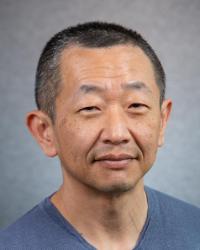UPDATE: Judge Wallace Tashima ruled in favor of the Tucson students on Aug. 22, 2017, finding that the Arizona law "was enacted and enforced with a discriminatory purpose." Read the full ruling.
The case that helped launch the law school's Civil Rights Clinic in 2012 heads back to the courtroom this summer, as Professor Robert Chang and a team of attorneys continue legal efforts to protect ethnic studies in Arizona.
The team won a partial victory two years ago, when the U.S. Court of Appeals for the Ninth Circuit largely reversed an earlier summary judgement against Tucson students and sent the case back for trial. The students are the plaintiffs in this case, suing to challenge the enactment and enforcement of a law what was used to terminate a highly successful Mexican American Studies program in the Tucson Unified School District.
The trial begins June 26 in U.S. District Court in Tucson. The Honorable A. Wallace Tashima will hear the case.
At issue is a 2010 Arizona state law, HB 2281, which regulates ethnic studies programs. Even though the law applies to the entire state, it was enforced in a way that specifically targeted Mexican American Studies in Tucson. Students watched as teachers were censored and school administrators removed seven specific books from their classrooms. They later sued, and the Korematsu Center for Law and Equality got involved to support the students and fight back against the discriminatory nature of the law.
"The Mexican American Studies program was singled out for enforcement of the law," Chang said. "And this was happening in a school district with a long history of discrimination against Mexican American students."
Tucson also offers programs for African American Studies, Pan-Asian Studies, and Native American Studies. None of them were targeted for enforcement.

Chang, executive director of the Fred T. Korematsu Center for Law and Equality, will join Tucson attorney Richard Martinez and lawyers from the New York-based Weil, Gotshal & Manges in presenting the case this summer. The team hopes to prove that HB 2281, as enacted and enforced, violates the Fourteenth Amendment's guarantee of equal protection and the First Amendment's guarantee of free speech.
Check out the Korematsu Center's archives for more on the litigation history of this case.
Seattle University School of Law students, as part of the Korematsu Center's Civil Rights and Amicus Clinic, have supported the case since the summary judgment hearing in Arizona in 2012, providing legal research and drafting briefs that have been vital to the plaintiffs' arguments. In fact, it was the first case the clinic ever accepted.
The lawsuit names Arizona's Superintendent of Public Instruction, Diane Douglas, and the State Board of Education (nominally) as defendants. The plaintiffs have changed over the years as the student plaintiffs graduate from high school, but the current plaintiffs are Tucson sophomores Manuel Barcelo and Noah González and their fathers.
The Arizona law prohibits classes that promote the overthrow of the United States government, promote resentment toward a race or class of people, are designed for pupils of a particular ethnic group, or advocate ethnic solidarity instead of treatment of pupils as individuals.
The Ninth Circuit found that there was substantial evidence that the law was adopted and/or enforced out of discriminatory animus and directed that the students' equal protection discrimination claims be set for trial.
"The Mexican American Studies program was developed to address the achievement gap and meet the needs of Mexican American students," Chang said. "Students who were previously disengaged in school became engaged. Test scores went up. Graduation rates went up. You would expect state officials to want more programs like this, rather than trying to shut it down."
